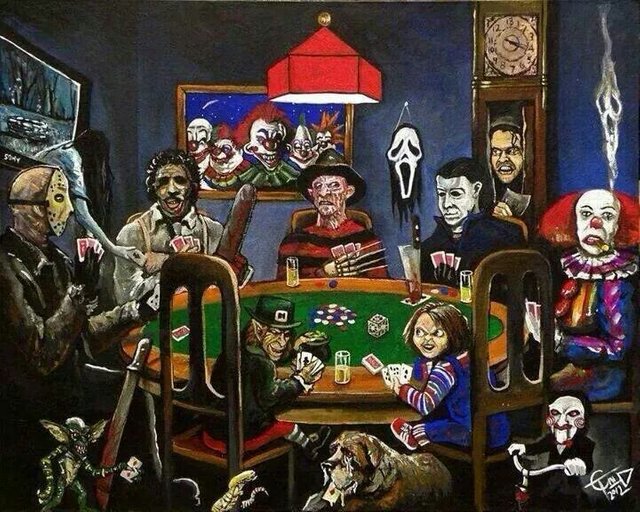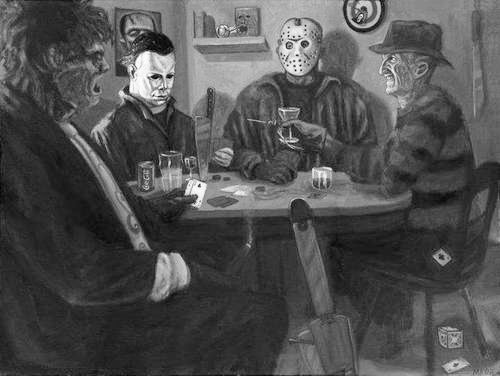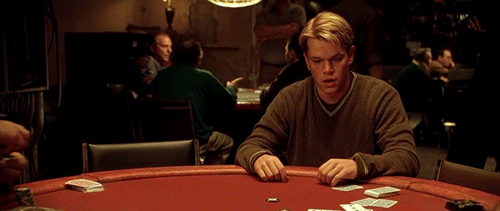Seriously What Are You So Afraid Of?
Seriously What Are You So Afraid Of?

The topic this time may be dealing objectively with the nagging fear that, even though a play appears correct, it could be exploitable.
The Hand
The hand in question comes from a four-handed on-line no-limt preserve ’em sport with $2/$four blinds. Both the Hero and the Villain have $400 stacks.
The Hero opens with a enhance to $14 holding K :coronary heart: J :club: inside the CO. The BTN folds, the SB calls, and the BB folds. My scholar describes the CO as free and passive, so his range for calling right here is probably much wider than we’d anticipate to see from a higher participant.
The flop comes J :spade: 2 :spade: K :membership:, giving Hero pinnacle pair. SB exams, Hero bets $22 into a $32 pot, and SB calls.
The flip brings the Q :spade:, completing some feasible flush and straight attracts and additionally putting Hero in the back of KQ. SB assessments, and Hero tests behind. Against a unfastened and passive participant, I suppose you may make a case for making a bet right here, however a test has its benefits as nicely.
The river is the 8 :club:, and now SB bets $60 into a $76 pot. My student folded, but he shared the hand with me because he become involved approximately folding any such robust hand after showing so little strength.
What Are You So Afraid Of?

Players will every so often say that their hand is “underrepresented” in a situation like this. After all, all Hero has completed to this point is lift from overdue position, make a continuation guess, and then test the flip. How can Villain assume him to have a hand as desirable as two-pair, and consequently isn’t it exploitable to fold one of these robust hand getting better than 2:1 pot odds?
The quick answer is that yes, that is an exploitable fold. Game theoretically most excellent (GTO) play could require Hero to name with nearly 70% of his range. Yet here, we're speaking about folding a hand that might be in the top 10-15% of Hero’s range for purchasing to the river on this manner. This is a large deviation from GTO play and therefore probably exploitable.
There’s some other question we ought to ask, even though: so what? When students come to me with fears like those, I encourage them to articulate what precisely they're worried about. Being “underrepresented” or “too weak” aren't awful matters in and of themselves. Before appearing on feelings like those, you need to articulate how exactly these things ought to come to be costing you money.
In other phrases, what would your opponent want to do to take gain of this “mistake” which you are considering? Suppose that the Villain on this hand knew that Hero would fold KJ and all worse fingers to a $60 river bet. What need to he do with that records?
The obvious answer is that he must bluff, a lot. The trap is that probably Villain needed either a couple or a draw to call a guess from out of function in this flop. The most apparent attracts got there or even fingers like AQ and QT now have a pair. It’s really not possible for Villain to don't have any-pair at the river.
Exploiting Hero’s extraordinarily tight calling range right here could require either floating the flop out of function and not using a pair and no draw proceeding to bluff the river or turning a pair into a bluff on the river. The former is a really difficult circulate to drag off and now not something I’d assume to look from even a unfastened participant at these stakes.
As for turning a couple into a bluff, this is a good spot for it, but that’s no longer some thing I’d assume a passive player to apprehend or take advantage of. Also the reality that Hero’s range looks susceptible absolutely makes it less possibly that Villain could sense the want to turn a couple into a bluff. He may also well think that a hand like JT may want to win at showdown and consequently be inclined to test.

What we’re seeing right here is that, even though Hero’s fold is theoretically very exploitable, this Villain is unlikely to be gambling in a manner with the intention to take benefit of Hero’s “mistake”. Thus, this “mistake” is not a mistake at all but a profitable approach for exploiting the Villain’s failure to bluff the river with an appropriate frequency. When you could become aware of positive exploitable tendencies in an opponent’s play, then you must adapt your own sport to take gain of these leaks, and that’s all that’s going on right here.
So does this imply that Hero became correct to fold? That depends on how confident he is in his study. As we’ve said, the pot odds dictate that Hero ought to call approximately 70% of the time. If his real calling variety is greater like his great 10-15% of arms, that is a big deviation from the GTO method. That doesn’t make it incorrect, but it does mean that he needs to be very assured in his reads. A small deviation from GTO strategy requires simplest an inkling of a read, however a big deviation like this calls for near-reality that Villain will surely never show up with a bluff.
Personally, I’m pretty confident we received’t see a bluff right here. However, despite the fact that Villain isn't always bluffing, it’s still feasible that he is betting a hand worse than KJ. Perhaps he thinks AK or QJ is good sufficient to value wager. Or possibly he's afraid that Hero will bluff and so making a blocking wager with a hand like KT or AQ. We need to bear in mind these situations as properly earlier than folding.
I’m tough pressed to name any hands apart from AK or QJ that would be price having a bet. Given the viable straights and flushes, it’s a ways from a hundred% certain that a passive player might try to cost guess even these at the river, especially for such a massive quantity. There’s also a fair threat that even a passive participant could have re-raised with AK pre-flop against a CO increase, so basic I suppose the probability of seeing this sort of hands is quite low.
A blockading bet is also a play I’d anticipate to peer much less frequently from a passive player, and the scale of the bet isn't constant with this clarification. While a blockading guess ought to theoretically be any length, they have a tendency to be small, because the complete concept is to avoid putting too much cash in the pot.
Once again, your degree of confidence within the reads and assumptions right here need to determine just how tight your calling range is. Personally, KJ is the borderline hand for me. If I even have KQ, there’s one greater hand he will be fee having a bet that I beat, and that’s enough to show it into a call.
Last Poker Tip Post Link: https://steemit.com/poker/@arcaneinfo/poker-tips-weekend-addition-pre-flop-hand-reading
 @arcaneinfo for more tips daily, cheers!
@arcaneinfo for more tips daily, cheers!